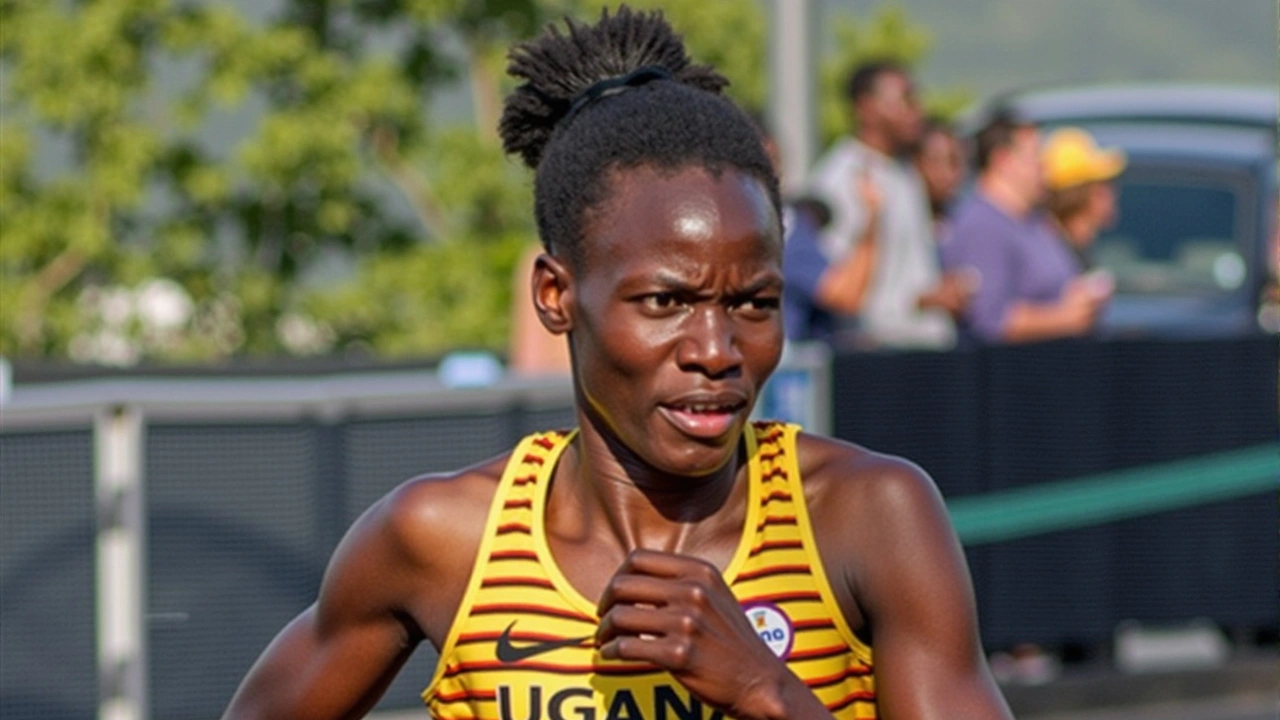The Heartbreaking Loss of a Talented Athlete
Rebecca Cheptegei, a name once associated with speed, endurance, and competitive excellence, has now tragically become a symbol of gender-based violence. The world watched her as she competed valiantly in the 2024 Summer Olympics in Paris, representing not just Uganda but the hopes and dreams of many. However, a heinous act by her former boyfriend has abruptly ended her journey, leaving a void in the world of sports and igniting widespread outcry.
Cheptegei was only 33 years old when her life was cut short. Reports indicate that after an altercation, her ex-boyfriend poured gasoline over her and ignited it. The resultant flames inflicted catastrophic injuries, leading to burns that covered more than 75% of her body. Despite efforts by medical personnel at the Moi Teaching and Referral Hospital in Eldoret, Kenya, Rebecca succumbed to her injuries early Thursday morning. Owen Menach, the hospital's senior director of clinical services, confirmed that the cause of death was organ failure, a direct consequence of the extensive burns she endured.
Condemnation and Condolences
The response to Cheptegei's death has been one of unanimous condemnation and sorrow. Uganda Olympics Committee president, Donald Rukare, was among the numerous voices expressing deep condolences to the athlete's family and friends. Rukare's words were filled with both sadness and determination, as he emphatically denounced violence against women, calling for more robust measures to protect female athletes.
The minister's sentiments were echoed by many in the sporting community and beyond. This tragedy has highlighted the urgent need for a more comprehensive approach to combating gender-based violence. With Cheptegei's death, the spotlight has again turned to a grim reality: the vulnerability of women in East Africa, even those who, like Cheptegei, have reached the pinnacle of achievement in their field.
Gender-Based Violence: A Pervasive Problem
Importantly, Cheptegei's tragic end is not an isolated incident. She is the third elite female athlete to be murdered in Kenya since October 2021. Damaris Muthee, a Kenyan-born distance runner, was tragically killed in April 2022, while Olympian runner Agnes Tirop lost her life in October 2021. These cases present a pattern that reflects a disturbing level of violence against women that transcends national boundaries within East Africa.
Statistics from 2022 paint a bleak picture. Nearly 34% of Kenyan girls and women aged 15-49 have experienced physical violence, while 41% of married women have faced violence within their domestic settings. Such figures underscore the chronic nature of the problem, suggesting systemic issues that require urgent and sustained attention.
Collective Action for Change
Following the death of Agnes Tirop, athletes took matters into their own hands by forming groups such as Tirop's Angels. These collectives aim to provide support and advocate for female athletes, ensuring that their voices are heard and that they receive the protection they need. They focus on addressing domestic violence and exploitation, recognizing that these issues extend far beyond isolated cases and are indicative of deeper societal problems.
Keeping the Fight Alive
Kenyan authorities have initiated an investigation into Cheptegei's killing, with a determination to bring the perpetrator to justice. The investigation represents not just a pursuit of legal accountability, but also an acknowledgment of the broader implications of such a crime. It is a step towards addressing the entrenched norms that perpetuate violence against women.
Kipchumba Murkomen, the Kenyan Sports Minister, described the incident as a stark reminder of the work that remains in combating gender-based violence. His statement reflects a widespread recognition that legal action must be complemented by educational and cultural initiatives aimed at changing societal attitudes towards women and violence.

The Way Forward
Rebecca Cheptegei's death is a solemn reminder of the dark realities that many women face daily. Her legacy as a formidable athlete is now intertwined with the urgent call for action against gender-based violence. Honoring her memory requires more than words; it demands a concerted effort to create a safer environment for women everywhere.
The ongoing battle to eliminate gender-based violence in East Africa, and the world at large, is far from over. It calls for a multi-faceted approach involving legal reforms, community support systems, and widespread educational campaigns. Only by addressing the root causes and taking proactive measures can we hope to prevent such tragedies from recurring.
